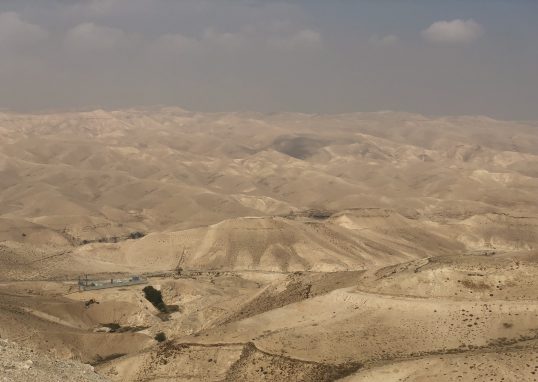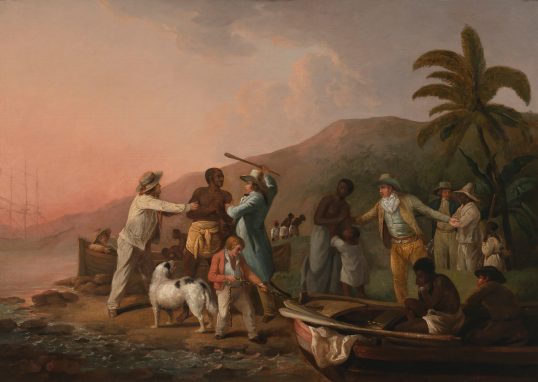
(deutsch: zur Seite 2 hier klicken)
Wisdom does not fly into our mouths like readily fried chickens. Wisdom wants to be found. But only she or he “who digs for her like for silver” will find her – as the Biblical Book of Proverbs informs us in chapter 2. But digging a mine into a mountain means a lot of sweat and blood. Jesus, on the other hand, had nothing against this form of mining. On the contrary, he totally seemed to confirm it with his puzzling stories such as about “the hidden treasure in the field” or “he who seeks will find”. Therefore Jesus better only spoke in riddles himself. That encrypted so that even his own disciples did not get what their Master really wanted to tell. This principle has still not changed. Questions like “where are the pearls and who are the swines?” are still very valid.

What man is wise enough to understand this? Who has been instructed by the Lord and can explain it? Why has the land been ruined and laid wasted like a desert than no one can cross?
The Lord said, “it is because they have forsaken my law, which I have set before them; they have not obeyed me or followed my law.”
Jeremiah 9.12-13
Anyone who wants to understand the wisdom of the prophets has to understand first that Old Testament prophecy is complex and multi-layered. You could say that there are always at least two addressees, often more. The first and by far the most important one is the original listener. In the case of Jeremiah, it were the inhabitants of the southern kingdom in the then divided Israel. That original message to Israel’s southern tribes at the time of Jeremiah sets the agenda, and everything that any other addressee may learn from it must be measured against the original message. (I need to emphasize this because the Bible is often interpreted sloppyly.) The second receiver was all of Israel, i.e. all Jews, including subsequent generations. Therefore, it was included in the canon of the Old Testament scriptures. It was also a message to Jesus himself and all his contemporaries. The third target group is then those that have been grafted into the tree trunk of Israel (as Paul puts it), i.e. the church. Three listeners at three different times (1. Israel’s southern kingdom at Jeremiah’s time, 2. all Jews after Jeremiah’s service and 3. the worldwide church after Pentecost) may draw three quite different messages from the same original text, and yet everything resonates harmoniously like a chord ; however, the original message always forms the basic tone. That is the wonderful thing about the mystery of the Bible. And some messages that Old Jerry & Co actually addressed to their contemporaries would mysteriously become relevant only thousands of years later. If you want to learn how to properly distinguish one message from the other, you should start digging for wisdom rather today than tomorrow. Because collecting wisdom work takes an awful lot of time and nobody else can do it for you.
I am sure that many people noticed the following words when looking at the above Bible excerpt:
- land,
- ruined,
- wasted like a desert,
- forsaken my law.
Why am I so sure? I wouldn’t have been only a few years ago. But today we are sensitized to these concepts. We may be used to a more modern terminology (e.g.
- Planet,
- Drought,
- Forest fires,
- Science,
but the unexpected resemblance to an ancient Bible text subconsciously arouses our attention. Suddenly the question “Who is wise to understand (the Bible)?” gets a sudden topicality. In any case, I get extremely alert when the Old Testament seems to say more to us today than to the original receivers. Recently, it happens over and over again to me that I am not as sure whether I am reading Scripture or the daily newspaper. I am totally amazed by the similarity of some of the content.
But first things first. Let me try to put it all in a good order.
Law and Land
In these verses we see the striking connection between “law” and “land”. For Jews, the relationship between faith and earth is a matter of course, their entire identity has always been linked to “land”. For Abraham it was first only a land, but after Moses they finally moved into the (promised) land. Jewish belief is very earthly. But perhaps because of this, the Jews of the Old Testament no longer took God seriously, they rather preferred to change their transcendent lover with some totem poles (Baal), because they were in the world, one could see and touch them. The resulting horrible brutalization of culture was Old Jerry’s big problem with his contemporaries: the law was abolished, the connection between law and land was no longer seen.
Today, we (the church, receiver no 3) have a similar problem. Frankly, we’re even worse off. We as the grafted ones don’t just recognize the connection between law and land. We Christians see no law at all (and here “law” is referring to the Torah, the law of Moses) because we are convinced it has been abolished. In practical terms, we disposed of the law – even if we’d never admit it theologically. On top of that we don’t see land. Unlike the Jews, our identity as Christians is not linked to a specific area. Accordingly, we poured out the child with the bath water and abolished the Jewish earthliness of faith too. Instead, we replaced it theologically with a diffuse heaven. Or we fell off the horse on the other side and confused the geographical great commission (starting from from Jerusalem via Samaria to the ends of the world) with colonization. Which made it even more difficult for us to link law and land in a good theological way. We simply separate what belongs together, we focus on the wrong details, we fail to see the big picture.
The individual is not at the center of the Biblical story! This individualism feeds the narcissism and the consumerism of the West. “For me, for me – it’s all about me!” The Bible is a story of cosmic history with Christ at the center.
Lesslie Newbigin
In summary: Christians of the West neither see law, nor country and no connection between the two. No wonder we’re blind, dumb, and paralized when it comes to interpreting environmental issues theologically. That opened my eyes to why I often felt so helpless, exposed, and powerless. But now I’m setting out to explore the mysterious connection between law and land.
I had promised to show why I have found comfort and hope especially in the Old Testament since 2019. Today we raised the second stone. We found no seed, we found a silver nugget: whoever is wise understands the connection between law and land. If that doesn’t motivate us to keep looking!
Let not the wise man boast of his wisdom or the strong man boast of his strength or the rich man boast of his riches, but let him who boasts boast about this: That he understands and knows me, that I am the Lord, who exercises kindness, justice and righteousness on earth, for in these I delight, declares the Lord.
Jeremiah 9:23-24






